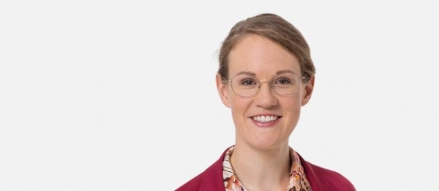
E-mobility: ECJ confirms commission model
E-mobility: ECJ confirms commission model
Facts of the case
The German e-mobility provider Digital Charging Solutions GmbH (DCS) is giving electric vehicle users in Sweden access to a network of charging points. The network offers users real-time information on prices, locations and availability of charging points, as well as functions for finding and planning routes. The charging points are provided by operators with whom DCS has concluded contracts. DCS equips customers with a card and an authentication app, which registers the charging process with the charging point operator. The operator then issues an invoice to DCS for the charging process and DCS charges the process to the user. DCS also charges a fixed fee for the network service, regardless of whether the user has purchased electricity during the relevant period and regardless of the quantity purchased.
Questions referred and ECJ ruling
The Swedish referring court initially wanted to know whether a supply that consists of charging an electric vehicle was a supply of goods. Unsurprisingly, the ECJ answered in the affirmative, pointing out that electricity is treated in the same way as tangible goods under Art. 15 (1) of the VAT Directive.
The real sticking point is the second question: In the three-person relationship at issue here, can a chain supply be assumed in which the operator of the charging points supplies electricity to DCS and DCS supplies this electricity to the refuelling customers, even though only the refuelling customer can decide on circumstances such as the quantity, time and place of charging and the way in which the electricity is used? The point of this question is whether this must be denied in light of the ECJ rulings "Auto Lease Holland" and "Vega International" or whether the commission model proposed by the VAT Committee for the fuel cards can be applied. In her opinion, the Advocate General had spoken out in favour of the commission model.
The court found that the present case differed from both "Auto Lease Holland" and "Vega International" in key respects. In the case of "Auto Lease Holland", there was a leasing contract in which the lessor pre-financed the fuel. This was not the case with DCS, as DCS did not charge a fee based on a percentage of the invoiced consumption, but a fixed fee that was independent of this. In the "Vega International" case, a parent company organised the fuel supply of its subsidiaries with fuel cards issued by it and is therefore not comparable with the present case.
The ECJ then agrees with the Advocate General's Opinion. DCS assumes the position of an intermediary so that the requirements of a commission transaction pursuant to Art. 14 (2) lit. c of the VAT Directive must be examined, in which the intermediary acts in its own name but on behalf of a third party. As a result, the regulation leads to a fictitious chain supply, although a direct supply exists under civil law. Two conditions must be met for this to be the case:
- The commission agent (the e-mobility provider) must be authorised by the principal (the card customer) to purchase electricity in its own name but for the account of the card customer (purchasing commission). Although this must ultimately be examined by the referring court, the ECJ considers this to be possible in this case.
- The supplies must be identical. The ECJ sees no problem here, as the electricity supplied is identical. In connection with the Advocate General's Opinion, some have argued that the charging point operator only supplies electricity, while the e-mobility provider provides additional services, which may rule out similarity. However, as the ECJ came to the conclusion in this case that DCS's ancillary services were independent of the supply of electricity, this question did not arise. The main reason for this finding was that a fee had to be paid for the separate services independently of the supply of electricity.
Practical impacts
Although the ECJ leaves the final assessment to the referring court, it considers the conditions for a commission transaction to be fulfilled here, which creates more clarity for the industry. An important aspect, however, is that the additional services of the e-mobility provider are calculated independently of the electricity supply. Models in which a percentage of the electricity consumption is charged run the risk of slipping into the area of financing services.
With the commission model, as with any supply of electricity, it is also necessary to check whether the parties involved are resellers within the meaning of § 3g UStG (German VAT Code), where the place of supply is located and whether the reverse charge procedure is applicable. Whether the customer is a VAT taxable person must be carefully checked.
It is also important to check whether supplementary services provided by the e-mobility provider are actually independent or whether they are ancillary services to the supply of electricity. Completely different rules apply accordingly.





